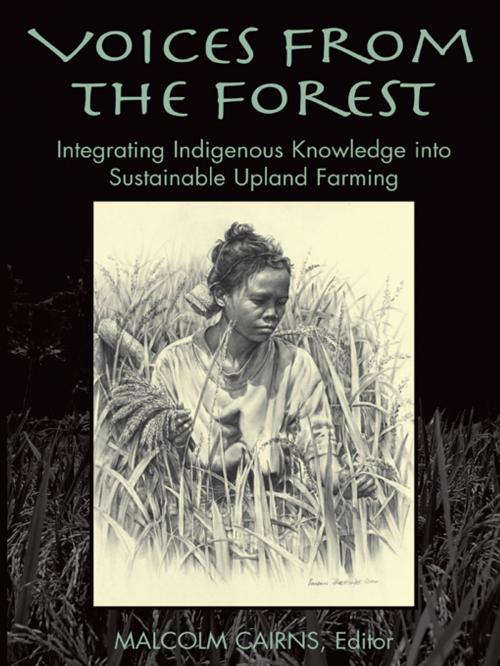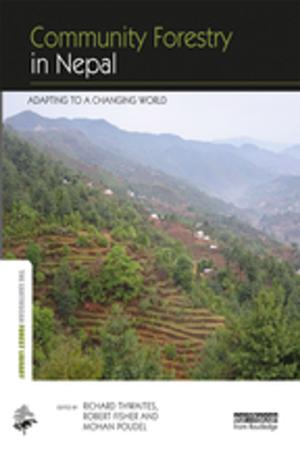Voices from the Forest
Integrating Indigenous Knowledge into Sustainable Upland Farming
Nonfiction, Science & Nature, Nature, Environment, Ecology, Technology, Agriculture & Animal Husbandry| Author: | ISBN: | 9781136522277 | |
| Publisher: | Taylor and Francis | Publication: | September 30, 2010 |
| Imprint: | Routledge | Language: | English |
| Author: | |
| ISBN: | 9781136522277 |
| Publisher: | Taylor and Francis |
| Publication: | September 30, 2010 |
| Imprint: | Routledge |
| Language: | English |
This handbook of locally based agricultural practices brings together the best of science and farmer experimentation, vividly illustrating the enormous diversity of shifting cultivation systems as well as the power of human ingenuity. Environmentalists have tended to disparage shifting cultivation (sometimes called 'swidden cultivation' or 'slash-and-burn agriculture') as unsustainable due to its supposed role in deforestation and land degradation. However, a growing body of evidence indicates that such indigenous practices, as they have evolved over time, can be highly adaptive to land and ecology. In contrast, 'scientific' agricultural solutions imposed from outside can be far more damaging to the environment. Moreover, these external solutions often fail to recognize the extent to which an agricultural system supports a way of life along with a society's food needs. They do not recognize the degree to which the sustainability of a culture is intimately associated with the sustainability and continuity of its agricultural system. Unprecedented in ambition and scope, Voices from the Forest focuses on successful agricultural strategies of upland farmers. More than 100 scholars from 19 countries--including agricultural economists, ecologists, and anthropologists--collaborated in the analysis of different fallow management typologies, working in conjunction with hundreds of indigenous farmers of different cultures and a broad range of climates, crops, and soil conditions. By sharing this knowledge--and combining it with new scientific and technical advances--the authors hope to make indigenous practices and experience more widely accessible and better understood, not only by researchers and development practitioners, but by other communities of farmers around the world.
This handbook of locally based agricultural practices brings together the best of science and farmer experimentation, vividly illustrating the enormous diversity of shifting cultivation systems as well as the power of human ingenuity. Environmentalists have tended to disparage shifting cultivation (sometimes called 'swidden cultivation' or 'slash-and-burn agriculture') as unsustainable due to its supposed role in deforestation and land degradation. However, a growing body of evidence indicates that such indigenous practices, as they have evolved over time, can be highly adaptive to land and ecology. In contrast, 'scientific' agricultural solutions imposed from outside can be far more damaging to the environment. Moreover, these external solutions often fail to recognize the extent to which an agricultural system supports a way of life along with a society's food needs. They do not recognize the degree to which the sustainability of a culture is intimately associated with the sustainability and continuity of its agricultural system. Unprecedented in ambition and scope, Voices from the Forest focuses on successful agricultural strategies of upland farmers. More than 100 scholars from 19 countries--including agricultural economists, ecologists, and anthropologists--collaborated in the analysis of different fallow management typologies, working in conjunction with hundreds of indigenous farmers of different cultures and a broad range of climates, crops, and soil conditions. By sharing this knowledge--and combining it with new scientific and technical advances--the authors hope to make indigenous practices and experience more widely accessible and better understood, not only by researchers and development practitioners, but by other communities of farmers around the world.















